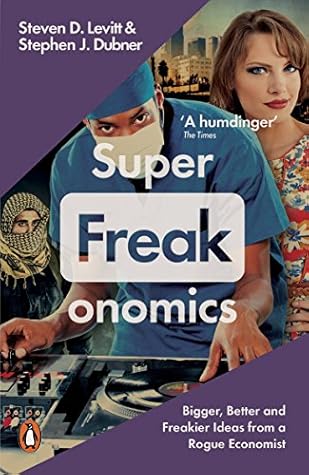More on this book
Community
Kindle Notes & Highlights
Most of us want to fix or change the world in some fashion. But to change the world, you first have to understand it.
Deliberate practice has three key components: setting specific goals; obtaining immediate feedback; and concentrating as much on technique as on outcome.
In general, Krueger found, “terrorists tend to be drawn from well-educated, middle-class or high-income families.”
“At a conference in 2002,” he writes, “foreign ministers from over 50 Islamic states agreed to condemn terrorism but could not agree on a definition of what it was that they had condemned.”
The probability that an average American will die in a given year from a terrorist attack is roughly 1 in 5 million; he is 575 times more likely to commit suicide.
The beauty of terrorism—if you’re a terrorist—is that you can succeed even by failing.
So it may be that going to the hospital slightly increases your odds of surviving if you’ve got a serious problem but increases your odds of dying if you don’t.
Many people who in previous generations would have died from heart disease are now living long enough to die from cancer instead.
Why did TV have this dramatic effect? Our data offer no firm answers. The effect is largest for children who had extra TV exposure from birth to age four. Since most four-year-olds weren’t watching violent shows, it’s hard to argue that content was the problem.
(Economists are known to admire theoretical proofs; thus the old quip: Sure, it works in practice, but does it work in theory?)
But what about all the prizewinning behavioral economists who had identified altruism in the wild?
Scholars long before John List pointed out that behavioral experiments in a college lab are “the science of just those sophomores who volunteer to participate in research and who also keep their appointment with the investigator.”
After the September 11 terrorist attacks, all commercial flights in the United States were grounded for three days. Using data from more than four thousand weather stations across the country, scientists found that the sudden absence of contrails accounted for a subsequent rise in ground temperature of nearly 2 degrees Fahrenheit, or 1.1 degrees Celsius.


